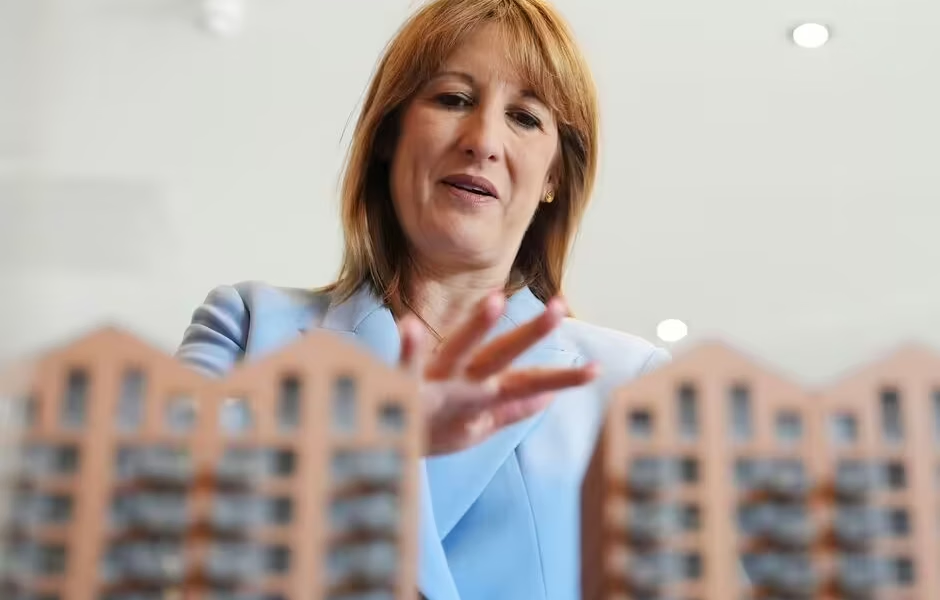
The Chancellor risks upsetting Middle England again if she cuts back the cash ISA allowance (Image: Getty)
Rachel Reeves has been warned against pushing up the cost of mortgages by cutting the amount you can save tax-free in a cash ISA. MPs from across the political divide have warned her not to slash the allowance in next month’s Autumn Budget in a bid to get people to invest in stocks and shares instead.
Building societies depend on cash ISAs to fund their mortgage lending, the Treasury select committee has warned. Homebuyers could face higher costs if less money is put into cash ISAs. Two-thirds of all ISA contributions were to cash ISAs in 2023-24. This pushed total cash holdings to £360billion.
Alarm bells rang earlier this year when then-Treasury minister Emma Reynolds said the Government was “looking at striking a better balance between cash and equities” for savers.
Dame Meg Hillier, who chairs the committee, said: “This Government is meant to be supportive of mutuals, with a manifesto commitment to grow the sector, so it must carefully consider how changes could badly impact building societies, which provide affordable mortgages for so many. This is not the right time to cut the cash ISA limit.
“Instead, the Treasury should focus on ensuring that people are equipped with the necessary information and confidence to make informed investment decisions. Without this, I fear that the Chancellor’s attempts to transform the UK’s investment culture simply will not deliver the change she seeks, instead hitting savers and mortgage borrowers.”
At present, the maximum amount you can contribute into ISAs in a tax year is £20,000. Across the country, 14.4 million people hold only a cash ISA.
There are concerns savers are missing out on better returns by putting their savings in cash. The Association of Investment Companies (AIC) has warned consumers are “likely to have the purchasing power of their savings eroded by inflation”.
Critics of the cash ISA argue the money sitting in these accounts could be used to fuel job-generating investment in the economy.
But Martin Lewis, founder of Money Saving Expert said told the MPs: “I do not think that we should reduce the cash ISA limit. This concept that, if you stop people saving in cash, they are going to put money in stocks and shares is false.”
Robin Fieth, chief executive of the Building Societies Association, welcomed the report, saying: “We strongly agree with the recommendation not to cut the cash ISA limit and we support efforts to encourage more people to invest through better awareness and education. However, undermining a successful savings product is not the way to achieve that.
“Cutting the Cash ISA allowance is all downside. It won’t encourage investment. It will simply undermine savings habits and make mortgages more expensive.”
“This is ultimately a question of fairness. Cutting the cash ISA limit benefits those with significant financial resources who can access other investment options to continue to build their wealth.
“ Meanwhile working people and pensioners – who may have smaller savings pots and a lower risk tolerance – will lose a trusted way to grow their savings securely, including the opportunity to put a small inheritance or pension lump sum into their cash ISA.”

Sir Mel Stride has accused Rachel Reeves of plotting ‘nothing less than a savings tax’ (Image: Getty)
Shadow Chancellor Sir Mel Stride said: “It’s no surprise the Treasury select committee is warning against cutting the cash ISA allowance – because Labour’s plan is nothing less than a savings tax.
“Rachel Reeves wants to punish people who do the right thing by saving for their future. That’s wrong. Saving should be rewarded, not taxed.
“If Rachel Reeves had a plan and a backbone, she would control spending – not raise taxes.”
Chancellor Rachel Reeves said: “[My] understanding is that the report says that changes to ISAs shouldn’t be made in isolation of other policies. I’ll be setting out any tax changes in the Budget in November.
“And of course we need to get that balance right. We want to help people to be able to save for mortgages, but we want people to get better returns on the money they’re investing… And at the moment, often returns on savings and returns on pensions are lower than in comparable countries around the world, and I do want to make sure that when people put something aside for the future they get good returns on those savings.”




